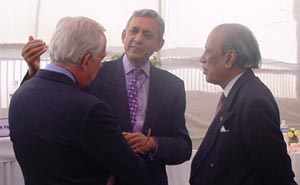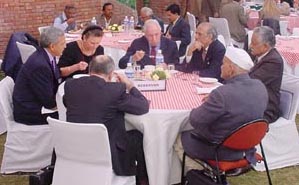 
Mr Mohan Dharia
narrated his experiences on achieving sustainable livelihoods at the grass-roots level and
underlined the importance of NGO initiatives. Development should be coupled with social
justice with due concern for the environment. Instead of focusing on construction of
megacities and high-rise buildings, efforts should be made to decentralize cities by
making provisions for curtailing population growth, avoiding traffic congestion, ensuring
adequate water supply, and efficiently collecting municipal garbage.
Villages should be made self-reliant to stop exodus of
people to urban areas. Measures to ensure a higher quality of life in villages include
health and nutrition, family planning, sanitation, provision of biogas plants, and tree
plantation. Education is the foremost priority. There is also a need to inculcate
discipline into democracy. This principle must follow through at every level of decision
making to bring about change in the mindsets of people and policy-makers
India’s strength lies in its natural resources.
Effective land usage, creation of water reservoirs, increased agricultural yield, cattle
productivity, watershed management, crop rotation, etc. have become the needs of the hour.
Despite ample funds being sanctioned by the government,
effective coordination, proper management, and active involvement of people have been
lacking. He concluded by saying that what is needed today is not only deliberations but
determined action.
|